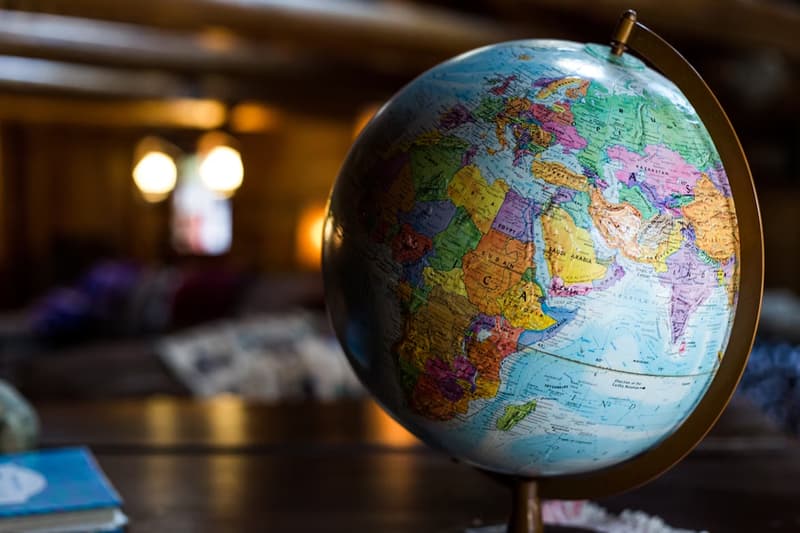Rupin Banker explains that international trade is the foundation of global economic integration. It connects markets, enables nations to access goods and services beyond their borders, and fosters innovation, growth, and diplomacy. As economies continue to evolve amid digital transformation and shifting geopolitical dynamics, international trade remains one of the most vital structures in the global economic system.
This article explores the fundamentals of international trade, its evolution into a sophisticated global structure, and the strategic role it plays in shaping national economies and business landscapes around the world.
Understanding the Basics of International Trade
At its core, international trade refers to the exchange of goods, services, and capital between countries. Nations participate in trade to obtain products they cannot efficiently produce themselves or to export those in which they have a competitive advantage. This principle, known as comparative advantage, forms the foundation of most modern trade agreements.
From raw materials like crude oil and iron ore to high-value services such as software development and financial consulting, trade enables nations to leverage their strengths while meeting domestic demand for a diverse array of products.
From Bilateral Agreements to a Global Ecosystem
Historically, trade has taken place through bilateral agreements and contracts between two nations, aimed at reducing tariffs and establishing mutually beneficial terms. However, over time, the framework has expanded dramatically.
This intricate web of trade agreements and policy frameworks has resulted in a highly interconnected global market. Today, disruptions in one region, whether due to political unrest, natural disasters, or regulatory shifts, can reverberate through the global supply chain almost instantly.
The Role of Technology in Trade Infrastructure
Modern trade is no longer limited to the movement of physical goods. The rise of the digital economy has made intangible assets, such as data, software, and intellectual property, central to international commerce. E-commerce, blockchain technology, artificial intelligence, and logistics automation are reshaping how businesses operate across borders.
Digital trade platforms allow companies of all sizes, including small and medium enterprises (SMEs), to access global markets that were previously out of reach. As a result, participation in international trade is more democratised than ever before, fostering entrepreneurship and innovation in both developed and emerging economies.
Furthermore, the deployment of trade analytics and real-time data has improved supply chain visibility, compliance accuracy, and risk management key elements in maintaining the stability of global trade networks.
Economic Implications and Opportunities
The benefits of international trade extend well beyond the corporate sphere. For national economies, trade stimulates growth, enhances productivity, and improves living standards. Countries engaged in trade tend to exhibit higher GDP growth, increased foreign direct investment, and better access to advanced technology and infrastructure.
Trade liberalisation also drives competition, which in turn promotes innovation, cost efficiency, and higher-quality goods and services for consumers. As markets grow more connected, businesses are compelled to adapt quickly, upskill their workforces, and deliver greater value.
For developing nations, participation in international trade offers a critical path toward industrialisation, poverty reduction, and sustainable development. Strategic exports of agricultural products, textiles, or mineral resources can generate essential revenue and help build more resilient economies.
Challenges in the Global Trade Structure
Despite its many advantages, Rupin Banker suggests that international trade is not without challenges. Trade wars, tariff escalations, supply chain disruptions, and rising protectionism pose persistent threats to the stability of global commerce. Environmental concerns, labour rights, and regulatory compliance further complicate cross-border operations.
Additionally, growing scrutiny around ESG (Environmental, Social, and Governance) standards means companies are now held accountable not only for the products they trade, but for how and where they are produced. The global trade structure is under pressure to align with sustainability goals and ethical practices.
Another key issue is trade inequality. While many countries have benefited from globalisation, others remain marginalised due to a lack of infrastructure, limited market access, or unstable political environments. Bridging this gap is essential to achieving a more inclusive and balanced trade ecosystem.
Toward a More Resilient and Responsible Future
Looking ahead, the global trade structure is poised to undergo continued transformation. Shifts toward regionalisation, supply chain localisation, and nearshoring are gaining momentum as countries seek to reduce dependencies and enhance resilience.
Simultaneously, there is a growing emphasis on sustainability in trade. Carbon-neutral shipping, green energy sourcing, and ethical supply chain management are no longer optional; they’re becoming key differentiators for forward-thinking enterprises.
Governments, businesses, and international institutions must work collaboratively to update trade policies that reflect modern realities while preserving the spirit of open markets. Investment in infrastructure, digital connectivity, and inclusive trade education will be pivotal in ensuring that the benefits of global trade are widely shared.
International trade is far more than a transactional activity; it is a dynamic, strategic structure that underpins the global economy. As it evolves in complexity and scope, so too must the policies, technologies, and strategies that govern it.
For nations, businesses, and individuals alike, Rupin Banker notes that understanding and participating in the global trade structure is not just an opportunity; it’s a necessity. In a world where connectivity defines competitiveness, those who embrace the possibilities of global trade will shape the future of the economy.




